Collateral Damage
- By Gaurav Nandi
- April 25, 2025
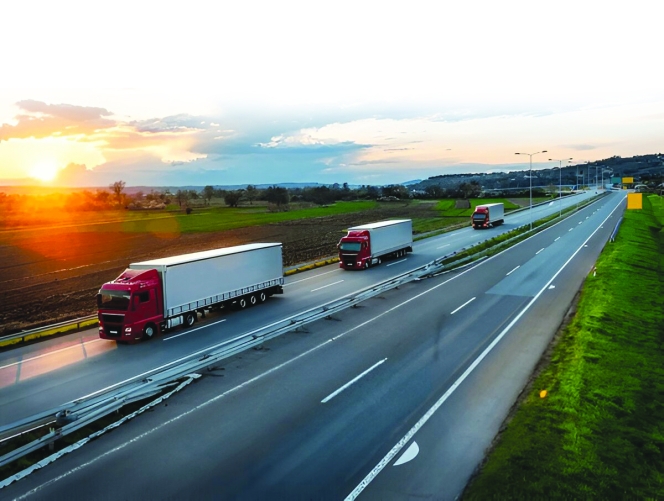
Retread tyres in Malaysia are unfairly blamed for road accidents. While the tyres enjoy a pristine reputation in export markets, the notoriety within the local market stems from the lack of ability to differentiate them from low-cost and low-quality tyres that fail to comply with performance standards owing to overloading, maintenance and misapplication.
A total of 1.35 million lives are lost each year in road accidents, according to data from the Ministry of Transport Malaysia. Another data set from Statista highlighted that the South Asian country witnessed 545,000 road accidents in 2022, an increase from the previous year data of 370,000.
A large portion of these accidents involve commercial vehicles and the blame is also shared by retread tyres. A recent news report highlighted rising concerns within the Malaysian parliament to ban the use of retread tyres of commercial vehicles citing safety norms.
The situation seems ironic as the Malaysian retread industry enjoys a pristine reputation in export markets. Yet, the notoriety of retread tyres on home turf might be seen as ‘collateral damage’.
Speaking to Tyre Trends exclusively on why retread tyres remain a scapegoat for road accidents, Tyre Retreading Manufacturers Association of Malaysia (TRMAM) President Edmund Wong said, “Retread tyres are often unfairly blamed for road accidents because the public struggles to differentiate them from low-cost, low-quality tyres that fail due to poor maintenance, overloading and misapplication. Many people mistakenly associate tyre debris, especially when it reveals exposed steel cords, with retreads. However, this type of failure is more commonly linked to cheap, substandard tyres rather than retreads, which, when properly maintained and used correctly, can be as safe as new tyres. The focus on retreads allows the real issues such as inadequate tyres maintenance and overloading to remain overlooked.”
IMPROVING ROAD SAFETY
Malaysia has a higher road fatality rate compared to ASEAN peers like Singapore, largely due to motorcycle-related deaths, which make up over 65 percent of fatalities.
Malaysia’s road safety goals have reportedly fallen short despite setting out clear targets. In 2014, the government aspired to reduce road fatalities by 50 percent by 2020 as part of its alignment with United Nations’ Decade of Action for Road Safety 2011-2020. The initiative was a failure and the same target was reiterated in Malaysia Road Safety Plan 2022-2030.
 Current figures also raise questions over the supposed success of the target. Commenting on ways that could make the reduction target a reality, Wong noted, “To reduce road fatalities by 50 percent by 2030, Malaysia should enforce traffic laws strictly, including penalties for speeding and disobeying traffic lights, while expanding automated systems like speed and red-light cameras. Enhancing road infrastructure with safety audits, smart technology and dedicated motorcycle lanes is essential.”
Current figures also raise questions over the supposed success of the target. Commenting on ways that could make the reduction target a reality, Wong noted, “To reduce road fatalities by 50 percent by 2030, Malaysia should enforce traffic laws strictly, including penalties for speeding and disobeying traffic lights, while expanding automated systems like speed and red-light cameras. Enhancing road infrastructure with safety audits, smart technology and dedicated motorcycle lanes is essential.”
“Malaysia can adopt best practices, such as dedicated motorcycle lanes, public education campaigns and improved road infrastructure, while learning from Singapore’s success in enforcement, infrastructure and safety culture. Public awareness campaigns should target risky behaviours including running red lights and promote defensive driving. Protecting vulnerable road users, especially motorcyclists and pedestrians, through improved infrastructure and safety regulations is also crucial,” he added.
Alluding to why stringent safety campaigns or regulatory measures are not undertaken to reduce motorbike fatalities, he noted, “The lack of stringent safety campaigns or regulatory measures targeting motorbike users in Malaysia is due to several factors. Firstly, motorbikes are a vital mode of transport for many due to affordability and accessibility, especially in rural areas, making stricter regulations politically sensitive. Secondly, enforcement of existing laws such as helmet use and licensing is inconsistent, particularly in rural regions, allowing unsafe practices to persist. Thirdly, cultural factors like risk-taking behaviour, resistance to change and low awareness of safety risks hinder the adoption of safer practices. Lastly, limited resources, both financial and infrastructural, result in insufficient investment in targeted campaigns and dedicated motorcycle lanes, leaving riders vulnerable.”
CLOSING GAPS
Wong iterated that to improve road safety and support the retreading industry in Malaysia, several regulatory gaps and enforcement lapses need to be addressed. One significant issue is the inconsistent enforcement of tyre standards, especially for imported new tyres.
While Malaysia requires that imported tyres have certifications like the E-mark, DOT or MS, these standards can sometimes fail to verify the genuineness and reliability of the tyres, leading to concerns about the quality and safety of some imports. This lack of stringent checks on tyres authenticity puts road users at risk and undermines confidence in tyre safety.
Additionally, there is a gap in regulations requiring regular tyre maintenance checks, particularly for retread tyres. Without mandatory inspections for tread depth, pressure and overall tyre condition, vehicles, especially commercial fleets, are at higher risk of tyre-related accidents.
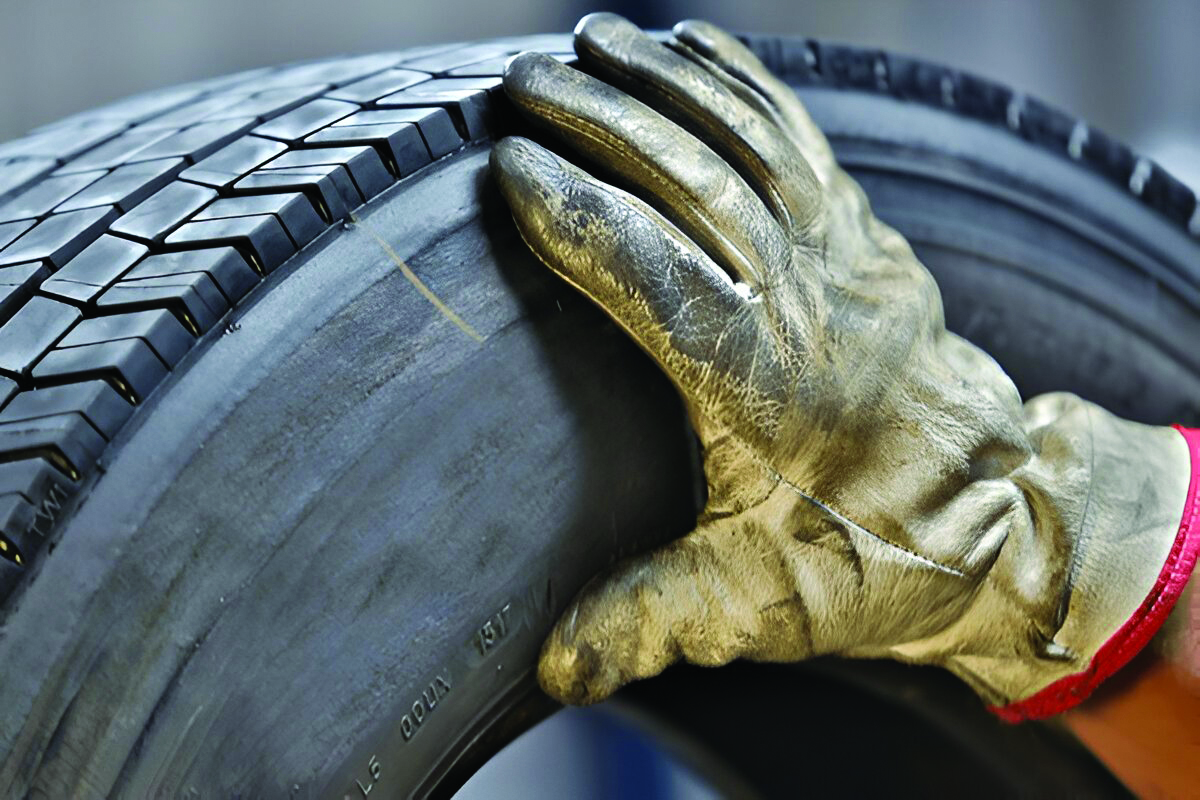
Another issue is the weak enforcement of penalties for overloading and the misapplication of tyres such as using retreads in unsuitable conditions. Overloading vehicles puts excessive stress on tyres, increasing the likelihood of tyre failure, and stricter penalties are needed to deter this dangerous practice.
There is limited education on the benefits of retreads and how to use them safely, which affects their acceptance and proper usage. Implementing campaigns that highlight the safety, environmental and economic benefits of retreads could help improve perceptions and encourage safer practices.
Moreover, government procurement policies should prioritise retread tyres for public transportation fleets, encouraging their use across sectors and providing a market boost to the retreading industry.
Lastly, there is a lack of clear regulations on tyre end-of-life management including guidelines for recycling and disposal. Establishing clear regulations for the responsible management of worn-out tyre, including retreads, would support the circular economy and further promote the sustainability of the retreading industry.
Addressing these regulatory gaps and enforcement lapses would not only improve road safety but also foster the growth of a reliable, safe and sustainable retreading industry in Malaysia.
REPUTATION REVIVAL
The shadow of malignance over the local retread industry is daunting, especially considering its stellar reputation abroad. A methodical plan is urgently needed to change the prevailing perception.
Commenting on how the industry can leverage its foreign reputation to promote retreads domestically, Wong explained, “Malaysia can leverage its reputation in the global retreading industry to promote retreads domestically by focusing on education, policy support and sustainability initiatives.”
“Firstly, educating the public about the benefits of retreads, such as safety, environmental advantages and cost-effectiveness, can shift perceptions. Secondly, incentivising businesses to adopt retread tyres would not only increase its usage but also align with sustainability practices. Retreads significantly reduce waste by reusing tyre casings, contributing to lower carbon footprints and less landfill waste. Offering tax breaks, rebates or financial incentives to businesses that adopt retreads can encourage the adoption of this eco-friendly practice, benefiting both companies and the environment,” he added.
He also noted that Malaysia has a well-established certification system with Malaysian Standard 224 (MS 224), which sets high-quality standards for retread tyres. This national standard ensures that domestically produced retreads meet rigorous safety and quality requirements, reinforcing consumer confidence and helping local manufacturers maintain global competitiveness. By promoting this certification and its benefits, Malaysia can further build trust in its retreading industry and drive domestic demand for high-quality retreads.
He also noted that partnerships with universities, research institutions and organisations such as the Malaysian Rubber Board (MRB) could play a pivotal role in establishing Malaysia as a hub for innovation in tyre retreading. These collaborations would enable research and development focused on improving the quality, safety and efficiency of retread tyre, which could enhance their appeal domestically and internationally.
“The Malaysian Rubber Board has extensive expertise in rubber technology and the development of new rubber compounds, which are crucial for retreading. By working with these organisations, Malaysia could explore advanced rubber materials and improve the durability and performance of retread tyres. MRB’s research could focus on optimising the rubber used in tyre retreading, enhancing its resilience and performance under various road conditions, thus improving the overall safety of retreads. Universities and research institutions bring additional expertise in materials science, engineering and sustainability and can help address any technical gaps in the retreading process. They could collaborate with retreading companies, fleet operators and tyre manufacturers to develop new retreading technologies, better tyre monitoring systems and more efficient processes,” explained Wong.
He added, “These partnerships could also produce credible, science-backed data on the reliability and safety of retread tyre, helping to build public trust and dispel misconceptions about retreads.”
FILLING DATA GAPS
The lack of local data to validate the reliability and safety of both retread and new tyres in Malaysia stems from several key factors, according to Wong.
“Primarily, there is a significant gap in research due to the lack of collaboration between tyre manufacturers, retreaders, fleet operators, research institutions and government agencies. Without cooperation among these stakeholders, there is little incentive or infrastructure to collect and analyse tyre failure data in the local context. This leads to a situation where tyre failure research is outdated or non-existent, leaving the industry to rely on studies from other countries such as US, which may be many years old and not reflective of current tyre technology or local conditions,” noted Wong.
He added, “This problem is not unique to Malaysia; many countries face similar challenges in gathering and sharing tyre-related data. For example, tyre debris reports and studies on tyre failures tend to be infrequent and may not accurately capture the complexities of modern tyre usage, road conditions or fleet operations. To address this gap, a collaborative effort among different stakeholders, both local and international, could be instrumental.”
Collaborations could fund and conduct comprehensive studies on tyres performance under local conditions. By sharing data and expertise, these stakeholders can develop a more accurate understanding of the causes of tyre failures, improve maintenance practices and promote better safety standards for both new and retread tyres.
Additionally, international partnerships could allow for access to global tyre failure databases and new research, enabling Malaysia to adopt best practices from countries like US, Japan or the EU, where more tyre safety research is available.
Establishing a framework for ongoing research and data sharing with regular updates and reports would help fill the data gap and improve tyre safety standards locally. This collaborative approach could ultimately lead to the development of localised tyre safety standards, improved regulations and more informed decision-making by all stakeholders involved.
NEW LEARNING
According to Wong, Malaysia can learn important lessons from countries like Japan and UK, where retread tyres are promoted effectively for their cost-efficiency and environmental benefits. Both Japan and the UK have robust local manufacturing industries for new, high-quality tyres, which ensure a consistent supply of durable tyre casings for retreading.
This industrial advantage helps protect the respective retreading industries by ensuring the availability of reliable casings that meet safety and performance requirements. Japan enforces stringent standards for both new and retread tyres through the Japanese Industrial Standards (JIS) such as JIS D 4202, which defines specifications for automobile tyres. These regulations ensure high-quality tyre production and maintenance, supporting a thriving retreading ecosystem.
Similarly, UK relies on the ‘E’ mark certification system, which aligns with European safety and performance regulations. The ‘E’ mark, prominently displayed on compliant tyres, indicates that a tyre has undergone rigorous testing and meets safety standards. This harmonised approach in UK ensures that only certified-quality tyres are used, reducing risks and building trust in retread tyres.
In Malaysia, the absence of a local new tyre manufacturing industry for trucks presents a challenge. The reliance on imported new tyres, coupled with the fact that Malaysia’s new tyre standard (MS 1394) is not compulsory, allows low-cost and lower-quality imports to flood the market.
These tyres often produce casings unsuitable for retreading, which undermines the retreading industry. To address these issues, Malaysia could make MS 1394 mandatory for new tyres, ensuring better-quality casings and fostering trust in retreads.
Additionally, promoting awareness of retreads’ economic and environmental benefits, strengthening enforcement of Malaysian Standard 224 (MS 224) for retread quality and offering incentives for their adoption could help the industry grow.
Technology, such as tyre monitoring systems, can play a significant role in addressing concerns about retread tyres and improving road safety. These systems provide real-time data on tyre pressure, temperature, tread depth and overall tyre health, helping to ensure that all tyres, including retreads, are properly maintained.
By monitoring tyre performance, these systems can detect early signs of wear, overloading or misapplication, reducing the risk of tyre failure. This not only enhances the safety of retread tyre but also helps prevent accidents caused by poor tyre maintenance or low-quality tyres, leading to a change in perception.
Bridging Critical Gaps In The Tyre Industry
- By Sharad Matade & Gaurav Nandi
- February 20, 2026
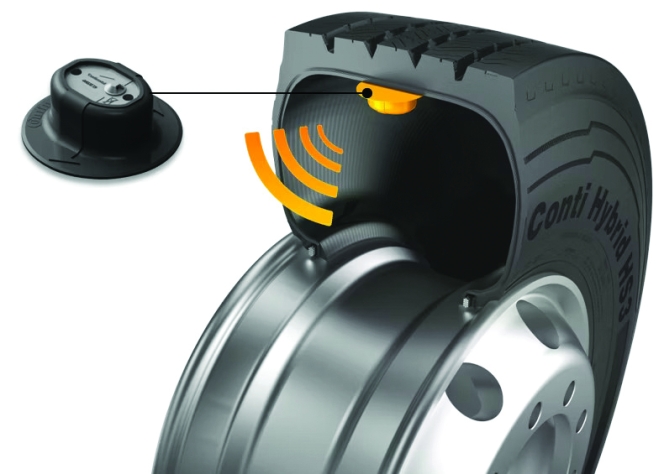
The global tyre industry faces unprecedented complexity as electrification, sustainability and intelligent vehicle systems reshape demands on materials, design and performance. CenTiRe, under Professor Saied Taheri, bridges gaps between academia and industry, integrating fundamental research with real-world constraints, fostering collaborative innovation and training engineers capable of navigating the evolving landscape of tyre and mobility technology.
The Center for Tire Research (CenTiRe) is a collaborative, industry-led research consortium partnered with Virginia Tech and the University of Akron, established in 2011–12 with seed funds from the National Science Foundation (NSF). At the time, the global tyre research ecosystem was strong in individual areas like materials, testing, vehicle dynamics and manufacturing but fragmented with few environments where these pieces were brought together in a sustained, pre-competitive way.
A critical gap was the disconnect between fundamental research and the practical questions industry engineers faced. Academic work often focused on isolated phenomena, while industry research and concept development (RCD) was under pressure to deliver solutions on compressed timelines.
Foundational problems like tyre-road interaction, variability and system-level behaviour rarely received attention in ways that were both rigorous and industrially relevant. Talent development was another challenge as companies needed engineers who could navigate experiments, modelling and real-world constraints, but training pathways were siloed.
CenTiRe was created to bridge these gaps by exposing students to industry-relevant problems early and consistently.
“Since its formation, CenTiRe’s role has evolved alongside the industry,” said CenTiRe Director and Professor Saied Taheri during an exclusive interaction with Tyre Trends.
“What began as a focus on core tyre mechanics and testing has expanded to include electrification-driven challenges, intelligent tyres, data-driven methods and stronger integration with vehicle control and mobility systems. Perhaps most importantly, the centre has evolved from a research hub to a long-term collaborative platform. Its value today lies not just in technical outputs but in continuity, providing a space where companies can step back from short-term pressures, share understanding and collectively address problems no single organisation can efficiently solve alone,” he added.
Taheri’s own focus on tyre and vehicle dynamics took shape during graduate work at Clemson University and was reinforced by observing how tyres were often treated as secondary in vehicle development, despite being the primary interface with the road.
Early experience across industry and academia showed that many vehicle-level challenges cannot be fully understood without deeper understanding of the tyre itself. Industry work underscored the importance of realism, while academic work highlighted the potential of revisiting often-overlooked fundamentals.
These experiences shaped his approach to applied research, emphasising physical understanding alongside practical implementation. More than three decades in the field have reinforced his belief that the most impactful research occurs at the boundaries between disciplines, organisations and theory and practice, a perspective that continues to guide both his work and CenTiRe.
CONVERGING PRESSURES
Tyre research today is being reshaped by several major shifts occurring simultaneously rather than sequentially, creating a level of complexity that is unprecedented. Electrification, higher instantaneous torque and evolving mobility expectations are placing new and often conflicting demands on tyres.
 “Electric vehicles fundamentally alter the operating envelope as high torque at low speeds accelerates wear and introduces new fatigue and durability mechanisms, while increased vehicle mass raises concerns around rolling resistance, heat generation and structural integrity,” said Taheri.
“Electric vehicles fundamentally alter the operating envelope as high torque at low speeds accelerates wear and introduces new fatigue and durability mechanisms, while increased vehicle mass raises concerns around rolling resistance, heat generation and structural integrity,” said Taheri.
At the same time, customers expect quieter and more comfortable tyres, which can run counter to traditional approaches to stiffness, robustness and durability.
These challenges are compounded by the fact that tyres are increasingly expected to function as part of an integrated vehicle system, interacting closely with advanced control systems, sensors and software.
Yet, physical understanding and modelling capabilities are still catching up, particularly under transient, highly nonlinear conditions that dominate real-world operation.
Taheri adds that sustainability is another critical layer as the industry is under pressure to reduce environmental impact without compromising safety or performance, forcing a rethinking of materials, testing methods and even optimisation criteria.
From a manufacturing and testing perspective, many existing processes were developed for a very different operating regime, assuming steady-state loading, gradual wear and clearly separated performance attributes.
He also noted that next-generation tyres, especially for electrified and automated vehicles, face higher torque transients, tighter noise, vibration and harness requirements and broader duty cycles, exposing sensitivities to material variability, curing and construction that are not always measured or controlled with sufficient resolution.
“On the testing side, a widening gap exists between laboratory validation and real-world use as standardised tests remain essential, but they often fail to capture coupled thermal, mechanical, acoustic and control-related phenomena, leading to continued reliance on correlation rather than true prediction,” contended Taheri.
Shrinking development cycles further strain this system as physical testing is costly and slow, while models and surrogate tests are asked to deliver more insight without always having robust validation frameworks.
“Data analytics and machine learning are beginning to play a meaningful role in addressing some of these pressures, particularly in areas with large, well-curated datasets such as manufacturing quality monitoring and test data analysis, where they can reveal sensitivities and patterns that are otherwise difficult to detect,” noted Taheri.
However, in performance-critical domains governed by strongly nonlinear, physics-driven behaviour, these tools function best as complements rather than replacements for physical understanding.
The most promising advances are emerging from hybrid approaches that integrate physics-based models, experiments and data-driven methods.
Overall, the central challenge and opportunity is not solving any single issue in isolation but developing integrated frameworks that intelligently manage trade-offs, supported by better physics, better data and stronger cross-disciplinary collaboration.
PUSHING THROUGH OBSTACLES
Taheri has been working on tyre-road friction, terramechanics and intelligent tyres for decades and his work is cited globally. However, these areas still remain technically challenging despite decades of prior research.
Commenting on the same, he noted, “These areas remain challenging because they sit at the intersection of multiple uncertainties that are difficult to control, measure or model simultaneously. At a fundamental level, the tyre-road interface is a highly nonlinear, transient and multiscale phenomenon involving viscoelastic materials, evolving surface conditions, temperature effects and micro- to macro-scale interactions that change continuously during operation. Even small variations in road texture, contamination or load can cause disproportionately large changes in friction behaviour.”
In terramechanics, he noted, the challenge is compounded by the deformable and history-dependent nature of the road. Soil properties vary spatially and temporally and rolling fundamentally alters the medium itself, making repeatability and generalisation difficult.
Intelligent tyres add further complexity through sensing, while ensuring robustness, durability and cost-effectiveness is inherently challenging and converting those measurements into reliable, control-relevant information remains an open problem.
“Progress in materials, sensing or modelling often reveals new limitations elsewhere and as vehicle systems evolve, particularly with electrification and automation, the boundary conditions continue to shift. Consequently, these are not unsolved problems but continuously evolving ones, with each vehicle generation raising the bar for accuracy, robustness and integration,” added Taheri.
At CenTiRe, Taheri said, addressing such complexity requires integration that goes beyond organisational structure and is embedded in how research questions are framed and executed.
Problems are defined around physical phenomena or performance gaps rather than along disciplinary lines. This ensures that materials behaviour, manufacturing variability, modelling assumptions and testing constraints are considered from the outset, rather than addressed sequentially.
People, he added, are central to this approach. Students and researchers are deliberately exposed to multiple domains, while industry partners are engaged throughout the project lifecycle rather than brought in only as reviewers. This helps create a shared technical language and reduces the risk of research fragmenting into isolated silos.
“The objective is not to make everyone an expert in everything but to ensure that insights generated in one domain are meaningful, transferable and usable across the others,” Taheri noted.
NEW VISTAS
Taheri views fundamental science and industrial relevance as mutually dependent rather than competing.
“In academia, advancing understanding, especially where assumptions or models fall short, must ultimately inform design, manufacturing or validation to have real impact. At CenTiRe, this balance is achieved by deliberately selecting fundamental problems tied to real-world constraints such as manufacturing variability, testing limits and control-system needs,” he said.
Education is central to this approach as training students to think rigorously while recognising practical constraints creates a vital bridge between science and application. The balance is achieved through alignment, not compromise, by choosing problems where scientific progress and practical implementation advance together.
One area where this is particularly evident is smart and intelligent tyres. “These tyres have the potential to fundamentally change how vehicles perceive and interact with the road, though the transformation will be evolutionary rather than sudden,” noted Taheri.
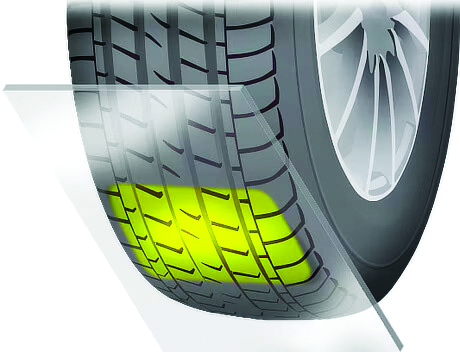 Traditionally, the tyre has been treated as a passive element in vehicle control with behaviour inferred indirectly from wheel speed, acceleration or yaw signals. Intelligent tyres allow more direct observation of the contact patch, providing real-time data on grip, load, temperature and surface conditions. This can significantly improve control robustness, especially in low-friction or rapidly changing environments.
Traditionally, the tyre has been treated as a passive element in vehicle control with behaviour inferred indirectly from wheel speed, acceleration or yaw signals. Intelligent tyres allow more direct observation of the contact patch, providing real-time data on grip, load, temperature and surface conditions. This can significantly improve control robustness, especially in low-friction or rapidly changing environments.
However, integrating tyre-level information into vehicle control introduces challenges around signal reliability, latency, validation and redundancy, particularly for safety-critical and autonomous applications.
Another key issue is abstraction as raw tyre data must be converted into physically meaningful, trustworthy indicators that can be fused with other vehicle and environmental sensors.
In autonomous driving, intelligent tyres may not act as primary perception sensors, but they can play a critical supporting role by informing systems what is actually achievable at the tyre-road interface, rather than what is assumed.
“Ultimately, this represents a shift from tyres as passive components to active contributors to vehicle intelligence, requiring advances not only in sensing but also in modelling, validation and system-level integration,” said Taheri.
TRUSTED COLLABORATION
Tyre development today faces the formidable challenge of reconciling performance, safety and environmental responsibility across the entire lifecycle. Materials that deliver wet grip, durability and fatigue resistance often carry significant environmental footprints, and replacing them without introducing new risks is technically difficult.
At the same time, improving rolling resistance to enhance energy efficiency, particularly for electric vehicles, can conflict with wear, noise and grip, while higher vehicle mass and torque further complicate trade-offs.
Wear and abrasion present another concern as tyre particles are increasingly recognised as an environmental issue, yet understanding of their generation and transport mechanisms remains incomplete.
End-of-life considerations amplify these challenges, since tyres were not historically designed for disassembly or reuse, making recycling and circularity systemic design problems. Addressing these issues requires lifecycle-based thinking, advanced predictive tools and close integration of materials, manufacturing and vehicle disciplines.
Alluding to these, Taheri noted, “CenTiRe addresses these complexities through a pre-competitive collaborative model that brings together global tyre and automotive companies in a neutral, trust-based framework. By focusing on fundamentals, the centre creates shared understanding while allowing individual companies to retain proprietary advantages in design and implementation. Its role is to reduce upstream uncertainty and risk, providing rigorous, unbiased validation that benefits all members.”
Industry continues to invest in this model because the technical challenges of electrification, system integration and sustainability are too complex and costly to tackle in isolation. Beyond technical outputs, the consortium fosters a shared language, trust and a culture of collaboration that enables competitors to learn from each other without compromising competitiveness.
Looking ahead, the hope is that Taheri and CenTiRe are recognised less as a single person or centre and more as a trusted ecosystem that helped the tyre and mobility industry think more rigorously and collaboratively about tyre performance, safety and sustainability.
“Success will be measured by the engineers trained to bridge physics and manufacturing realities, the risk de-risked through sound modelling and experimentation and the elevated global technical conversation around tyres,” said Taheri.
Equally important is the role of CenTiRe in building bridges between disciplines, companies and generations of engineers, helping the industry better understand and respect one of the most complex yet underappreciated components of mobility.
Over the next decade, this vision positions CenTiRe as both a technical and cultural catalyst for the global tyre and mobility sector. n
Continental Achieves Top Ratings In CDP Climate And Water Security Ranking
- By TT News
- February 20, 2026
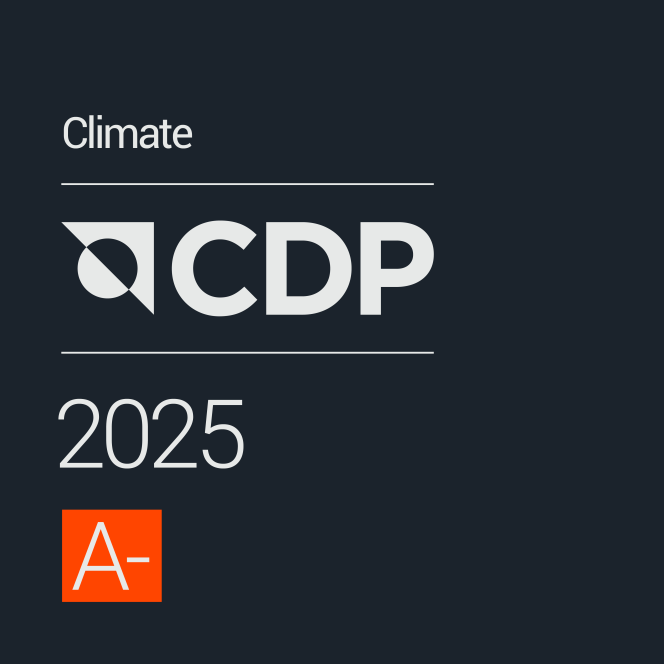
Continental has once again received recognition from the CDP for its transparent and proactive approach to environmental stewardship, securing an ‘A-‘ rating for climate action and supply chain management. Formerly known as the Carbon Disclosure Project, this independent non-profit evaluates corporate environmental impact using a rigorous scoring system that ranges from ‘A’ for leadership to ‘D’ for initial disclosure. Continental’s latest score reflects its strong performance in reducing CO₂ emissions, advancing low-carbon innovation and promoting sustainability across its supplier network. The company also maintained a ‘B’ rating in water management for the second year in a row, underscoring its consistent efforts in this area.
For over 15 years, Continental has taken part in CDP assessments, which help investors and other stakeholders gauge how effectively companies are addressing environmental challenges. In the climate category, CDP considers factors such as emissions reduction initiatives, environmental policies and the influence a company exerts on its suppliers’ sustainability practices. Continental’s rating affirms its commitment in each of these areas.


A cornerstone of the company’s climate strategy is its participation in the RE100 initiative, through which it has sourced green electricity since 2020. This includes power generated from on-site solar installations as well as electricity procured through regional and grid-wide power purchase agreements. These contracts not only ensure a steady supply of renewable energy and price stability but also contribute to the expansion of new wind and solar projects. Together, these efforts help reduce Scope 2 emissions. Further energy savings are achieved through efficiency upgrades such as better insulation of production equipment, LED lighting retrofits and systematic leak detection and repair.
In water management, Continental has made significant progress by reducing water withdrawal per metric tonne of product by more than 10 percent between 2020 and 2025. This reduction, equivalent to 197 million litres, was accomplished through measures like water reuse, treatment and more efficient usage across its facilities.

The company also prioritises traceability and transparency in its raw material supply chains. It enforces strict sourcing standards, engages directly with local producers – for instance, by training smallholder farmers in sustainable natural rubber cultivation – and employs digital tools to monitor and improve supply chain integrity. Additionally, Continental invests in alternative materials to lessen its environmental footprint. These include silica derived from rice husk ash, tall oil from paper production and polyester fibres made from recycled PET bottles collected in regions lacking bottle deposit systems.
Jorge Almeida, Head of Sustainability, Continental Tires, said, “We constantly optimise production, products and processes through all phases of a tyre’s life cycle – from raw-material sourcing and manufacturing to use and end-of-life management. We are committed to climate action in our own operations and through close collaboration with our suppliers.”
Tolins Tyres Reports Higher Quarterly Revenue As Volumes Recover
- By Sharad Matade
- February 20, 2026

Tolins Tyres Limited reported a rise in quarterly revenue as demand recovered across retreading materials and new tyre segments.
Revenue for the three months to 31 December 2025 increased 33.8 percent year on year to INR 933 million, while earnings before interest, tax, depreciation and amortisation (EBITDA) rose to INR 142 million. Net profit declined to INR 105 million from INR 109 million a year earlier.
For the first nine months of the financial year, revenue rose 11.8 percent to INR 2.49bn. EBITDA fell to INR 366 million from INR 426 million, and net profit declined to INR 268 million from INR 294 million.
Tolins Tyres said growth in the quarter was supported by higher volumes in domestic markets and increased contribution from recently launched agricultural tyres. The India business remained the main source of revenue, while UAE operations contributed steadily.
Dr K V Tolin, promoter, chairman and managing director of Tolins Tyres Limited, said, “Q3 FY26 marked a strong rebound in performance with robust year-on-year revenue growth and clear recovery in volumes across both retread and new tyre segments. The deferred demand witnessed in Q2 has meaningfully converted into orders during the quarter, reflecting improved customer sentiment and normalized buying patterns following the GST revision.
The agricultural segment delivered encouraging traction, with our newly launched tractor rear tyre range beginning to contribute meaningfully to revenues. The increasing share of tractor tyres in our overall mix validates our strategic focus on expanding presence in high-demand farm tyre categories. Distribution expansion and deeper engagement with institutional customers further supported volume growth across key markets.
For the nine-month period, the Company has demonstrated resilience and improved operational momentum. With demand visibility strengthening, a diversified customer base, and continued cost discipline, we believe Tolins Tyres is well-positioned to sustain growth in the coming quarters while maintaining focus on margin stability and operational efficiency.”
Eastern Treads Appoints Navas Meeran As Managing Director
- By Sharad Matade
- February 20, 2026

Eastern Treads Limited has appointed Navas Meeran as managing director following the expiry of the tenure of M E Mohamed.
Meeran’s appointment took effect from the close of business on 14 February 2026 and is subject to shareholder approval. Mohamed ceased to hold office on the same date on completion of his term.
Eastern Treads said its key managerial personnel now comprise Navas Meeran as Managing Director, Devarajan Krishnan as Chief Financial Officer and Abil Anil as Company Secretary.
The company stated that Meeran has more than 33 years’ experience in the tyre retreading industry and previously held roles including Chairman of the Confederation of Indian Industry’s southern region and membership of its national council.
It added that Shereen Navas, a Director of the company, is the spouse of Meeran.







Comments (0)
ADD COMMENT